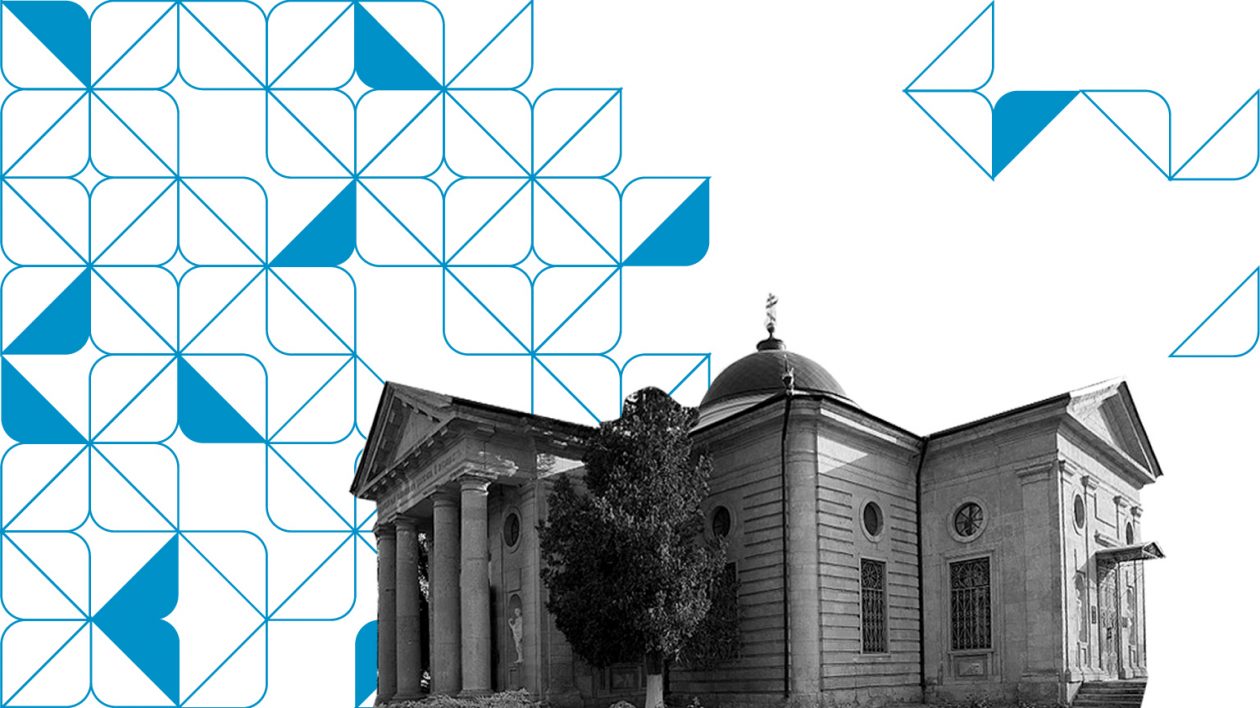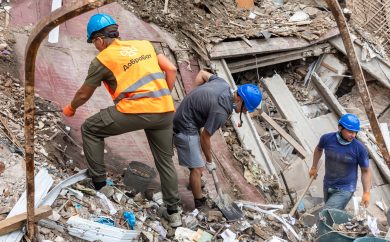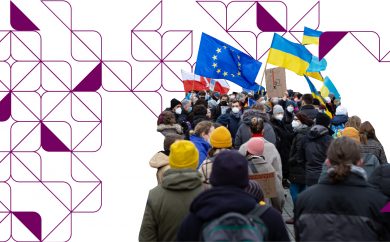In Kherson, 4% of citizens are actively engaged with civil society organizations. Despite the considerable potential, 94% of citizens from Kherson have never contributed to CSOs financially. Lack of interest is a major reported obstacle to active participation in civic initiatives. 37% of respondents in Kherson mistakenly believe that the president is the sole source of power in Ukraine, and more than half are convinced that they would not get proper access to crucial state services without giving a bribe.
Pact presents these and other key findings of the National Civic Engagement Poll, conducted in summer 2021 under the USAID/ENGAGE Activity. Since 2019, Pact has been biannually collecting additional data under the poll from its four target oblasts – Kharkiv, Zaporizhzhia, Sumy, and Kherson.
The Latest Round of the Civic Engagement Poll
Civic Engagement: Lack of Interest is the Main Obstacle to Citizen Participation in Civic Initiatives
Kherson residents are more engaged in the lives of their communities rather than in the activities of CSOs. 6% of respondents regularly attend meetings and other public events of their communities and 24% do it rarely. 36% report that they are not interested, while 34% did not have time for such activities. When it comes to engagement with CSOs, 4% of respondents claim to actively participate in their activities and 10% rarely. The lack of interest prevails for 57% of Kherson citizens, while 28% indicate lack of time.
Similar to national polling results, Kherson residents are less engaged in civic activities. Instead, they mainly participate in the life of a local community. Thus,13% participated in public hearings and 18% were engaged in the creation or work of a housing, street, or block committee. Another 6% reported personally or by phone on the infrastructure issues to the local administration.
Unanimously with the rest of Ukraine, Kherson citizens` participation in addressing issues of national significance is often below the margin of error. 1% were involved in discussing bills at the national or local level, 1% of the respondents disclosed to the Prosecutors’ office corruption cases that became known to them and 1% communicated them through media.
Citizen Donations: Rich People and Business Perceived as Major Force Responsible for Funding CSOs
The Kherson oblast findings suggest that donating to CSOs is not among the priorities for oblast residents. 94% have never donated to the activities of civil society organizations. Instead, the vast majority believes that rich people (77%), businesses (62%) and citizens that belong to groups that this initiative represents (31%) should financially back such initiatives. The share of those who put this responsibility on the state is 28%.
41% of the respondents are convinced that nothing would make them invest in civic initiatives. However, those who can potentially donate will first and foremost pay attention to the clear goals and results of the initiatives (34%), public reporting of expenses (20%), and a cause that the civil initiative supports (20%). On the other hand, active advertisement of the fundraising campaign (29%) tops the least important factors that influence the decision to provide financial support to a CSO.
Despite the above indicators, Kherson respondents have experience in supporting financially those in need. 48% of Kherson citizens gave money to street beggars, 42% supported the army, while 41% donated to orphanages/care of the critically ill.
Attitude toward Reforms: Expectation of Reforms Stretch Over Decade
The Kherson respondents consider the crisis in the Donbas (63%), corruption (59%), and the lawlessness and lack of rule of law (44%) to be the biggest problem for the state. These findings slightly differ from the opinion of most Ukrainians who put corruption (50%), crisis in the Donbass (42%), and poverty (37%) on top of the list. When asked about reform priorities for their own families, the perceptions of respondents from Kherson mirror the national findings: poverty (53% vs 47%), unemployment (47% vs 34%) and access to healthcare (29% vs 36%) are the main concerns of the respondents. For the region, unemployment (58%), poverty (40%) and corruption (33%) are the top three areas that require reforms.
Kherson residents are more pessimistic in their attitude and expectation of reforms than Ukrainians in general. 28% of respondents felt negative consequences of reforms (24% in Ukraine), and 6% noticed positive changes (2% in Ukraine). The biggest share (25%) expects reforms to happen in more than 10 years (18% in Ukraine), while 18% – no sooner than in 6-10 years (12% in Ukraine).
Talking of corruption, Kherson residents repeat the inconsistency voiced by most Ukrainians. An absolute majority of Kherson residents (97%) agree that corrupt officials should be removed from offices (Ukraine – 91%). At the same time, 72% believe that if one can resolve an issue with a public servant by using a reward, most people will do so (Ukraine – 66%). Although 77% note that anyone who offers a bribe must bear the same responsibility as the one who takes it, 56% of respondents are convinced that they will not get proper access to healthcare or higher education unless they pay a bribe (65% and 49% in Ukraine, respectively).
Civic Literacy: Aware of Rights, Confused by the Mandate of Government Bodies
Kherson residents are generally aware of their fundamental rights, the structure of power, and budgeting procedures. At the same time, Kherson citizens repeat the all-Ukrainian struggle to answer the questions on the income tax rate (31% of correct answers in the oblast vs 41% nationwide), local executive bodies (26% vs 25%) and the authorization to hold a peaceful assembly – 55% convinced that local authorities should greenlight it (Ukraine – 62%). Kherson respondents also found it difficult to answer the questions related to the source of the state power – 37% of respondents believe that it is the President. Some of the respondents also struggled to identify a top legislature of Ukraine – 65% answered that it is the Verkhovna Rada (70% in Ukraine).
________________________________________
This survey summary was prepared by Pact as part of the USAID/ENGAGE activity, which is funded by the United States Agency for International Development (USAID). The contents of this survey summary are the sole responsibility of Pact and do not necessarily reflect the views of USAID or the United States Government.
About the CEP
The Civic Engagement Poll is conducted under the framework of the Enhance Non-Governmental Actors and Grassroots Engagement activity (USAID/ENGAGE), implemented by Pact. This report summarizes key takeaways from the poll, drawing from survey data collected in the autumn of 2021.
The survey gauges citizen awareness of and engagement in civil society activities, and citizens’ participation in and perception of reform processes in Ukraine. During the most recent survey, respondents were also asked questions on the fundamentals of state functioning, human rights, and financial literacy.
The data collection for the USAID/ENGAGE Civic Engagement Poll was conducted by the research agency Info Sapiens, in August – September of 2021. Field interviews were conducted with Ukrainian residents aged 18 years and older, face-to-face, in the respondents’ homes. The survey sampled 306 respondents and was designed in accordance with the distribution of the adult population of the Kherson oblast by age, sex, and settlement type according to the data of the State Statistics Service of Ukraine as of January 1, 2019. The margin of error of the sample is 5.7% (excluding the design effect).
Find more results from the Civic Engagement Poll:
Winter 2021 Summer 2020 Winter 2020 Summer 2019 Winter 2019 Summer 2018 Winter 2018 Autumn 2017
You can download survey data and charts here.


